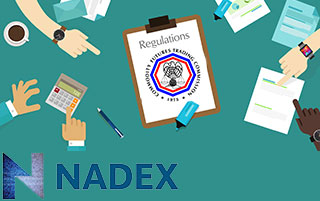Globalization is one of those terms that people may take as a blanket concept. The level of interconnectedness in the world gives some the sense that capital is truly free to move from one place to another. This capital is supposed to help its users acquire unrestricted access to goods and services, no matter where the owner of the capital lives. In come the regulatory bodies, each in their jurisdiction, which set accessibility rules for that capital. The binary industry is no stranger to these norms. However, since binary options have become increasingly popular in the last few years, regulatory bodies have been playing catch up, further confusing potential investors. It is time to clarify and understand the basics.
Generally speaking, one of the main goals of regulation is to protect citizens from harm. In the case of financial institutions, strong regulation is supposed to prevent embezzlement, scams and other kinds of financial wrongdoing. When it comes to binary options brokers, there are a lot of advantages in choosing a regulated broker. Some countries require their citizens to invest only under specific types of regulation. There are also some investors that specifically look for unregulated brokers, because these allow them to stay anonymous until they withdraw their funds.
An overwhelming majority of regulated brokers in the industry, comply with CySEC regulation. CySEC is the Cyprus Securities and Exchange Commission. The commission is part of the MiFID which is the European Union law that provides for harmonized regulation between all member nations. This means that regulation by any MiFID compliant body in Europe, grants access to every MiFID compliant market in Europe. To make it simple for the reader, a broker that is regulated under the regulation board of any European country that is subject to MiFID, can let any investor within the EU open an account. Here is a list of European regulatory institutions that are not as well known as CySEC in the binary options industry, but can regulate binary options brokers under the same MiFID norms. The list is given by country:
- BaFin, Germany
- REGAFI, France
- AMF, France
- CONSOB, Italy
- AFM, Netherlands
- CMNV, Spain
- FSA, UK
- FCA, UK
Other non-EU citizens can also trade through EU regulated brokers, and those brokers can promote their investment products in other countries, unless specified otherwise. The US for example, accepts only binary option brokers regulated by their own regulators, which are either SEC or the CFTC. Until now only 3 binary options platforms are under CFTC regulation.
This is due in partly to the fact that CFTC regulation is by far the most expensive to comply with. Therefore not many binary options brokers are CFTC compliant. In fact, the main CFTC regulated broker, and the broker that effectively controls the US binary options market is NADEX. Binary options in the US and NADEX are almost synonymous. In other jurisdictions around the world, traders have many more options.
CFTC regulation is fundamentally different than EU regulation. For example the CFTC requires binary options brokers to keep their funds in segregated bank accounts. That means that when a trader opens an account with a CFTC broker, his or her funds actually go to a separate bank account held by a bank and controlled by the investor. This guarantees that the investor has access to his or her funds independently from the broker, preventing all kinds of schemes to prevent the transfer of funds back to the owner.




